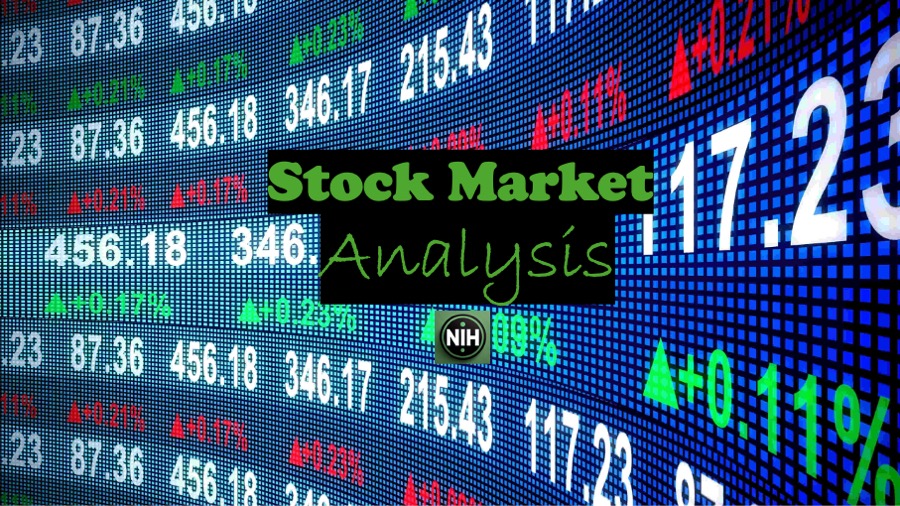The Nigerian financial markets have recently witnessed a notable selloff, raising questions about the underlying causes and future outlook. This market downturn can be attributed to a combination of external macroeconomic pressures and internal dynamics, influencing both investor confidence and asset valuations. This article examines the key factors driving the selloff, assesses its implications, and provides actionable insights for investors navigating these turbulent times.
Factors Behind the Market Selloff
1. Higher U.S. 10-Year Treasury Yields
One of the significant contributors to the recent selloff is the sharp rise in U.S. 10-year Treasury yields. As these yields climb, global investors are incentivized to pivot toward safer assets like U.S. bonds, reducing their risk appetite for emerging market equities, including those in Nigeria. The higher returns on these securities increase competition for capital, which often flows out of higher-risk markets such as Nigeria’s.
2. Stronger U.S. Dollar Index
The strengthening U.S. dollar has further compounded Nigeria’s economic challenges. A robust dollar exerts downward pressure on the naira, with the local currency recently depreciating to ₦1,549/USD. This devaluation inflates the cost of servicing Nigeria’s external debt, estimated in billions of dollars. The weakened naira also affects import costs, contributing to higher inflation and eroding disposable income. The pressure on Nigeria’s balance of trade and foreign reserves intensifies, further destabilizing market sentiment.
3. Elevated Inflation in Nigeria
Inflation in Nigeria remains a persistent concern, hitting 34.8% in December 2024, up from 34.6% in the previous month. Elevated inflation affects consumer spending power and increases operational costs for businesses. The ripple effect is seen in dampened corporate earnings and a more cautious market outlook. Inflationary pressures are largely driven by factors such as high energy prices, currency depreciation, and supply chain disruptions, which continue to undermine economic stability.
4. Mixed Market Performance Metrics
The Nigerian Exchange (NGX) All-Share Index recorded a minor uptick of 0.09% recently but remains down 0.74% year-to-date. This decline reflects a lack of sustained investor confidence amid macroeconomic volatility. While some sectors exhibit resilience, the broader market sentiment remains subdued.
Should Investors Worry?
While the selloff has sparked concerns, it is essential to view these developments through a balanced lens. Short-term market corrections are often responses to heightened uncertainty rather than indicators of systemic failure. However, investors should remain cautious and adopt strategies to mitigate risks and capitalize on opportunities in this environment.
Strategic Insights for Investors
1. Stocks to Consider
- Dangote Cement Plc: As one of Nigeria’s largest exporters, Dangote Cement benefits from dollar-denominated earnings, providing a natural hedge against naira depreciation. The company’s significant market share and strategic investments in infrastructure projects bolster its long-term growth potential.
- SEPLAT Energy Plc: Operating in the oil and gas sector, SEPLAT’s exposure to crude oil markets offers a robust shield against currency fluctuations. With oil prices stabilizing above $75 per barrel, SEPLAT stands to gain from increased production and export revenue.
- Geregu Power Plc: Positioned at the forefront of Nigeria’s power infrastructure initiatives, Geregu Power is set to benefit from governmental investments aimed at addressing the country’s electricity challenges. This focus on infrastructure development makes Geregu an attractive prospect for long-term investors.
2. Stocks to Avoid
- Nestlé Nigeria Plc and MTN Nigeria Communications Plc: Both companies face significant exposure to foreign exchange volatility. Nestlé’s reliance on imported raw materials increases its operational costs, while MTN Nigeria contends with rising debt servicing costs and regulatory uncertainties.
Exploring Fixed-Income Opportunities
Fixed-income instruments provide a relatively safe harbor during periods of equity market volatility. Nigerian Treasury bills currently offer yields as high as 18%, presenting a compelling option for investors seeking to hedge against inflation. Similarly, money market funds provide liquidity and stable returns, making them an attractive choice for risk-averse investors.
In the bond market, Nigerian government securities across 2-year, 3-year, and 5-year tenors exhibit solid performance, with annualized returns ranging from 20.5% to 25.1%. These instruments are particularly appealing for institutional investors and high-net-worth individuals looking to preserve capital while earning competitive yields.
Global Diversification: A Hedge Against Domestic Risks
Diversifying into global assets is another effective strategy for mitigating risks associated with local economic challenges. U.S.-listed exchange-traded funds (ETFs) like the SPDR S&P 500 ETF (SPY) and the Invesco QQQ Trust (QQQ) offer exposure to mature markets and high-growth sectors like technology. These ETFs provide a hedge against naira depreciation and the potential for capital appreciation.
Additionally, commodities like gold can serve as a store of value in uncertain times. Investments in gold ETFs or bullion offer protection against inflation and currency risks, aligning well with a defensive portfolio strategy.
Macroeconomic Context and Implications
1. Interest Rates
The Central Bank of Nigeria (CBN) has maintained a monetary policy rate (MPR) of 27.5%, aimed at curbing inflation. However, high borrowing costs weigh on corporate profitability and consumer spending, limiting growth prospects across sectors.
2. Foreign Exchange Reserves
Declining foreign reserves, exacerbated by limited export revenue and high import demand, constrain the CBN’s ability to stabilize the naira. This situation underscores the importance of structural reforms to diversify Nigeria’s revenue base.
3. Economic Growth Projections
While GDP growth rebounded to 10% in Q3 2024, the outlook remains clouded by structural inefficiencies and external shocks. Policymakers must focus on improving infrastructure, reducing dependency on oil, and fostering private sector investment to sustain long-term growth.
Conclusion
The recent selloff in Nigerian financial markets reflects a confluence of external pressures and domestic vulnerabilities. While these challenges are significant, they are not insurmountable. Investors should focus on recalibrating their portfolios by emphasizing defensive sectors, exploring fixed-income opportunities, and diversifying into global markets. Staying informed and proactive will enable investors to navigate the current volatility and position themselves for long-term success.
By adopting a data-driven and strategic approach, investors can mitigate risks and uncover growth opportunities even amid market turbulence. The key lies in balancing caution with calculated risk-taking to ensure resilience and profitability in an ever-changing economic landscape.
